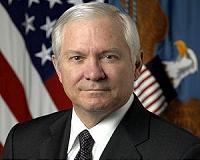| . |  |
. |
Dubai, United Arab Emirates (UPI) Nov 8, 2010 The U.S. administration's plan to sell advanced weaponry worth at least $122 billion to its allies in the Persian Gulf to counter Iran is causing unease in the Middle East. There are fears that the mega-deal, the biggest arms sale in U.S. history if Congress approves, carries serious risks it will inflame regional rivalries while it provides huge profits for the U.S. defense industry. The potential for conflict in an inherently unstable region prone to war and insurgency is immense. Iraq, Yemen, Lebanon and the Levant are all powder kegs. Israel feels increasingly squeezed by missile-armed forces that ring it and may resort to pre-emptive strikes. The massive U.S. deal doesn't cover Iraq, where the Americans are still rebuilding the country's postwar military and security forces. But that, too, causes concern. Saddam Hussein launched two wars against his neighbors. He invaded Iran in September 1980, triggering a grueling war of attrition that ended in August 1988. Two years later he invaded Kuwait, which ended in a crushing defeat for Iraq by a U.S.-led coalition. Iraq's neighbors, particularly Iran and Saudi Arabia, have no wish to see the new Iraq become a military power. Right now, that prospect is less threatening than the reality of the present, with Iraq once again sliding into chaos and anarchy that could spill over into the Persian Gulf as the Saudis and other Sunni states seek to prevent the Iranians gaining a foothold in the heart of the Arab world. The Americans have armed the gulf states for decades but this time they're providing them with offensive systems. The Saudis, who will get arms worth at least $60 billion, are reported to be funding Sunni insurgents in Iraq while their intelligence service strives to outwit Iran's clandestine operatives there. The Saudis have to consider what will happen once U.S. forces complete their withdrawal from Iraq, scheduled for the end of 2011. "The United States will retain some considerable air power in the region, by virtue of its bases in Qatar, Kuwait, Bahrain and Oman and its regional carrier fleets," The Economist observed in November. "The U.S. has also pledged to continue to provide air cover for Iraq after the troop withdrawal but it is not clear how this will work in practice. Overall, the U.S. presence will be reduced, which provides a compelling case for Saudi Arabia to bolster its own air power." The wholesale upgrading of the armed forces of Saudi Arabia and its partners in the Persian Gulf is seen in some quarters as a risky enterprise that will only convince the Iranians they need nuclear weapons to counter such a buildup of conventional forces ranged against them. "Imagine if China had armed an aggressive, anti-American Mexico to the teeth," U.S. Rep. Ron Paul. R-Texas, noted. "How would we feel? Threatened? That is likely how Iran feels with this massive arms sale to Saudi Arabia. "To underscore this message, the U.S. quietly announced it was selling 20 F-35 stealth fighters to Israel "Will such a provocative move, arming two anti-Iranian powers in the region to the teeth, lead to a trigger event to bring about a full invasion of Iran?" Paul asked. "The economic tsunami that would result from such a horrific turn of events would only be eclipsed by the death and destruction in the region -- and likely beyond." Congress is expected to approve the arms sales because Israel has gone along with it, in part because it sees Iran as an existential threat. Tehran may well see this as a dangerous realignment of forces in the region against it. The unfolding collapse of the Sunni regime in Yemen, Saudi Arabia's neighbor on the southwestern tip of the Arabian Peninsula, is another disturbing factor in this equation. In 2009, the Saudis were dragged into Yemeni President Ali Abdullah Saleh's war against rebellious Houthi tribesmen in the north because he was unable to crush them. The Saudi ground forces didn't perform well against the nimble rebels fighting on their own turf and had to resort to airstrikes and artillery bombardments to quell the revolt, which simmers still. But Yemen is also grappling with a swelling al-Qaida problem and Saleh is finding it increasingly difficult to counter the jihadists as well.
Share This Article With Planet Earth
Related Links The Military Industrial Complex at SpaceWar.com Learn about the Superpowers of the 21st Century at SpaceWar.com
 Gates heads to Australia, Malaysia to bolster defense ties
Gates heads to Australia, Malaysia to bolster defense tiesWashington (AFP) Nov 4, 2010 US Defense Secretary Robert Gates departs Friday for Australia and Malaysia to bolster defense ties amid concern in the region over China's growing economic and naval power. Gates will join Secretary of State Hillary Clinton and top US military officer Admiral Mike Mullen at an annual US-Australia conference of ministers in Melbourne next week before heading to Kuala Lumpur on Tuesday, Penta ... read more |
|
| The content herein, unless otherwise known to be public domain, are Copyright 1995-2010 - SpaceDaily. AFP and UPI Wire Stories are copyright Agence France-Presse and United Press International. ESA Portal Reports are copyright European Space Agency. All NASA sourced material is public domain. Additional copyrights may apply in whole or part to other bona fide parties. Advertising does not imply endorsement,agreement or approval of any opinions, statements or information provided by SpaceDaily on any Web page published or hosted by SpaceDaily. Privacy Statement |